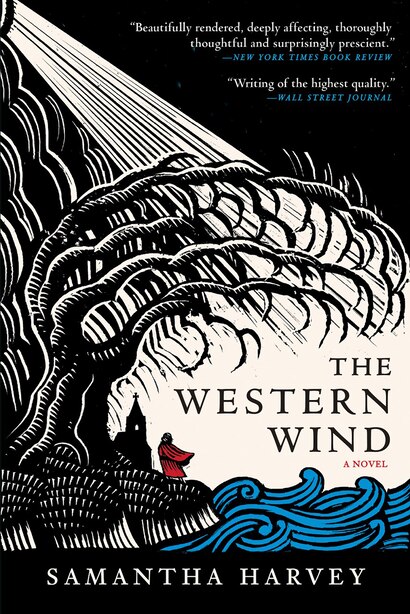
I bought the novel, The Western Wind, because of the acclaimed author, Samantha Harvey, the strong reviews, and because I do judge books by their covers -- the illustration is fabulous.
I passed it on to Ruth, my wife, a few months ago and she encouraged me to read it, which I finally began to do at the beginning of last week. I knew that it was set around 1500 in England, and that it is a mystery, or sorts. I hadn't realized that the time of year when the story commences was exactly when I began reading, just before Ash Wednesday.
As we anticipated the season of Lent in our home with a meal of pancakes the priest of the impoverished backwater village is hearing the confessions of his parishioners on Shrove Tuesday. In the novel this priest is a decent man, respected by his flock, and helping them come to grips with the death of the only prosperous resident of the community. He is also facing the challenge of finishing the consumption of a goose given to him by a parishioner before the fasting of Lent begins.
Essentially Christians of the medieval world subsisted on bread, vegetables and some salt during Lent. Fish was permitted, although uncommon. Both beer and and wine were watered down. It's a wonder that people didn't perish from malnutrition, or die of boredom!
I'm only halfway through this well-written and engaging story but I'm struck by how similar and yet different Lent is over the span of 500 years. Many of us in Christian communities which once ignored Lent are now observing Ash Wednesday and the contemplative nature of the 40 days leading to Holy Week (not including Sundays.) We have Lenten study groups and devotional resources and some congregation extinguish candles from week to week as a sort of reverse Advent. During Holy Week there are now Maundy Thursday services, as well as on Good Friday.
All this said, there is a different zeitgeist or spirit of the age. In the medieval world the church was the centre of community life and the rhythms of the liturgical year were as important as the seasons. Choosing not to participate could put one's soul in peril and getting right with God was essential.
We certainly don't want to live in a society based on fear and authoritarian figures. Fasting has never appealed to me, truth be told. Perhaps we do need to pay more attention to the seasons of the spirit, and the rhythms of the earth.
No comments:
Post a Comment